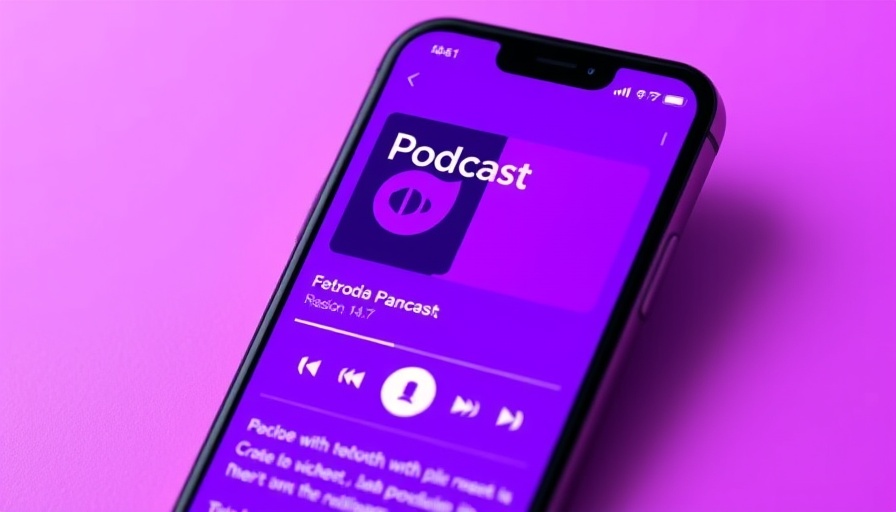
Transforming Mental Health Response in Los Angeles
The recent wrap-up of the "Mental Health on the Frontlines" podcast seasons 13 to 16 highlights a significant shift in how mental health crises are managed in Los Angeles. As communities strive for better mental health support, effective collaborations are proving their worth. One such collaboration is with the Los Angeles Police Department (LAPD), where the integration of mental health professionals directly alongside law enforcement personnel has fostered better outcomes for individuals in crisis and improved community relations.
Insights from Episode 13: Revolutionizing Response with LAPD
In episode 13, the spotlight shines on Bac Luu, a Mental Health Clinical Program Manager at the Los Angeles County Department of Mental Health (LACDMH). Luu discusses the innovative model established since 1993, which employs the Systemwide Mental Health Assessment Response Teams (SMART) and the Case Assessment Management Program (CAMP). This unique approach combines police officers with trained mental health specialists, creating a robust response protocol that has received both national and international acclaim. Their joint efforts offer an effective way to respond to crises, ensuring that individuals get the mental health care they urgently need.
Reaching Out: Episode 14's Focus on 988 Crisis Lifeline
As discussions progress from reform to practicality, episode 14 features Reuben Wilson, the head of the Alternative Crisis Response (ACR) Unit. Highlighting the importance of the 988 crisis lifeline, Wilson emphasizes that this 24/7 service is designed to divert mental health emergencies from the police to trained professionals. The collaboration with Didi Hirsch Mental Health Services ensures immediate and compassionate care for those in distress, thus bolstering community trust in mental health services. This initiative signals an evolving understanding of how mental health support systems can operate outside traditional law enforcement realms, shifting the paradigm towards care-focused responses.
Innovative Approaches: Insights from Episodes 15 and 16
The final two episodes feature Francisco Tan and Miriam Brown, who shed light on the Psychiatric Mobile Response Team (PMRT) and the expansive outreach efforts by LACDMH as Mental Health Awareness Month approaches. Tan, leading the PMRT, elaborates on how these teams operate 24/7, directly engaging individuals in crisis. These teams mix diverse expertise, including social workers and peer support specialists, emphasizing a community-centric approach to mental health emergencies. Their mission is clear: to provide immediate assistance while fostering connections to ongoing care, ensuring that individuals remain situated within their communities.
Community Impact: The Broader Network of Support
Miriam Brown, Deputy Director of Emergency Outreach and Triage, brings her extensive experience to the conversation. Through her leadership, LACDMH has become a benchmark for how mental health crises are addressed as she collaborates with various agencies, including police, fire departments, and schools. This multifaceted approach has resounded positively within the community, evidencing that effective mental health outreach can exist harmoniously alongside law enforcement and other public safety entities.
Why This Matters Now: Local Perspectives for Bakersfield Residents
For residents of Bakersfield and surrounding areas, these discussions are not merely theoretical. With the ongoing mental health awareness wave, it is critical to understand the innovations happening just upstream in Los Angeles County. Community members can glean insights into how similar initiatives can be implemented locally, fostering a more supportive environment for those struggling with mental health challenges. By leveraging lessons learned, Bakersfield can create a comprehensive approach to mental health that resonates with its unique community needs.
Engaging with Mental Health: Actions Worth Taking
As mental health awareness continues to rise, individuals are encouraged to engage in community discussions and advocacy related to these initiatives. Learning about resources like the 988 lifeline is essential for providing timely support in crisis situations. Furthermore, local partnerships can explore creating programs reminiscent of those shared in the podcast, promoting an understanding that mental health care is everyone’s responsibility.
As we continue to navigate the complexities of mental health care, let us remain proactive in our approach, always advocating for compassionate and responsive systems that prioritize individual well-being.
 Add Row
Add Row  Add
Add 



Write A Comment